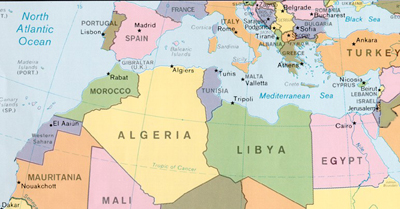Heineken acquires Tango Brewery in Algeria
While the rest of the world is waiting for a super-deal to happen, Heineken is quietly expanding its reach into the Maghreb. Call it an “axis of appeasement” throughout predominantly Muslim countries or just a plain old-fashioned market conquest. In any case, Heineken definitely know what they are doing.
In January this year, Heineken announced the acquisition of the Tango Brewery in Algiers, Algeria. As with the previous two acquisitions in Belarus and Serbia, no price was disclosed.
Heineken acquires the Tango brewery from the Group Mehri, headed by the businessman Djilali Mehri. Interestingly, Mr Mehri’s political proclivities place him next to the Islamist camp according to Algerian internet sources. Which is slightly odd, given his ownership of the Tango brewery. However, as you may know, the attitude towards alcohol is not quite straightforward in the Maghreb. For example, countries like Morocco, Algeria and Tunisia once constituted a major wine producing region.
Until the discovery of oil in Algeria in 1956 followed by the country’s independence in 1962, wine was the pride of the Algerian economy, writes Euromonitor in a market survey. Algeria was the fourth largest wine producer in the world and the leading exporter at that time. In 1962 (year of independence) vineyards occupied 366,000 hectares and were producing 1,800 million litres of wine yearly. This represented 50 percent of the country’s total exports and 30 percent of its GDP in that year.
As most of the wine was exported to France, it was a real blow to Algeria’s wine industry when after independence, France decided to ban Algerian wine exports into the country. Consequently, the area under vines fell to only 100,000 hectares in the 1980s. It has since diminished even further to only 38,000 hectares in 2004, of which 90 percent is located in the western part of Algeria (Oran region) with annual production of 25 million litres.
The government never considered outlawing the production of wine. On the contrary, in support of its winegrowers, the government in 2001 decided to intervene through the provision of financial support via loans to winegrowers.
Despite frequent political unrest – the government’s and the military’s hold to power is precarious in face of a fierce Islamist opposition - Algeria has one of the strongest and most regular GDP growth rates in the North African region with 2 percent in 2001, 7 percent in 2003, and 5 percent in 2005. GDP per capita rose from USD 6,600 in 2004 to USD 8,100 in 2007.
Djilali Mehri, whose commercial interests range widely, started building a brewery with a Latino theme – Tango – in Rouiba near the capital of Algiers in 2000. Apart from brands such as the mainstream Tango, the budget brands Fiesta and Samba, his brewery also produces Stella Artois and Beck’s under license. Today the company employs 350 staff. Despite a production capacity of 750,000 hl the brands acquired by Heineken have a combined volume of 140,000 hl only, says Heineken. The Heineken brand, currently imported, will be brewed in Algeria as of this year.
The current growth of the Algerian beer market is approximately 10 percent per annum based on a total volume of 1.1 million hl. Current per capita consumption is 3.2 litres. Heineken’s major – and larger – competitor in Algeria is France’s BGI owned by Pierre Castel, who is in bed with SABMiller through a cross-ownership deal in several other African countries.

